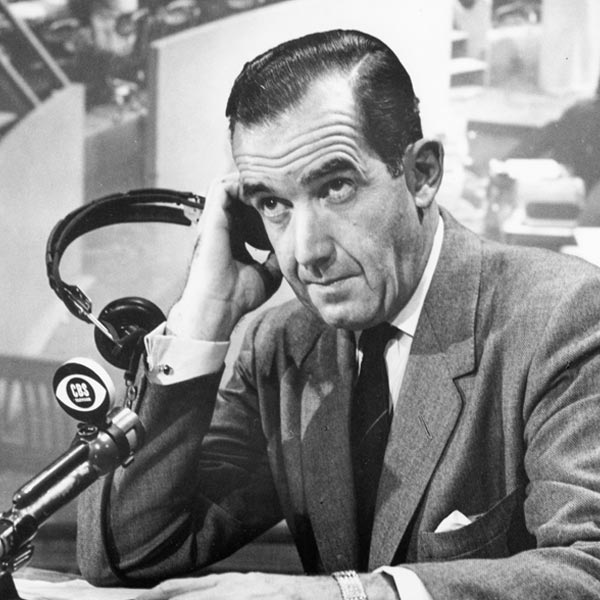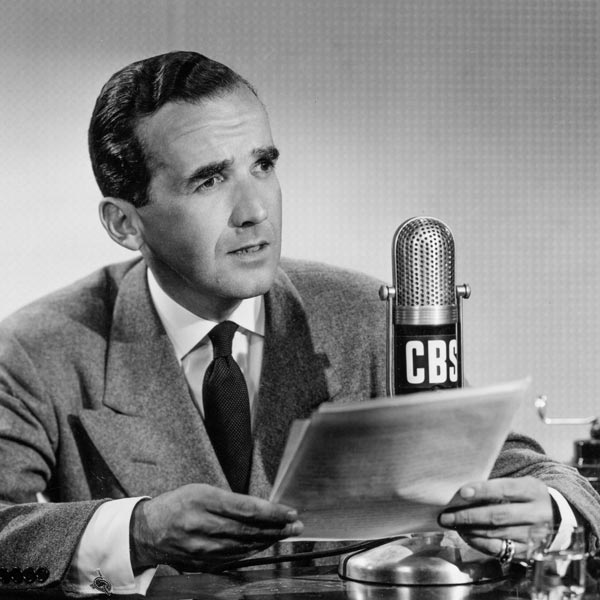
THE FATHER OF BROADCAST JOURNALISM
Before Edward Murrow, radio news wasn’t reported, it was simply read. Through his work as European director of CBS London, he transformed the radio announcer into a reporter -- a trusted witness describing events as they unfolded.
1977 RADIO INDUCTEE

Stationed at airfields, riding in bombers and traveling with troops, his stirring reports from London during World War II and his nightly radio news program, praised for its incisiveness, helped to elevate the standards of broadcast journalism and aided in the development of broadcasting as a journalistic force.

No one took the responsibility of the reporter’s role to check the power of politicians more seriously. Murrow’s was the lone voice to rise against Sen. Joseph McCarthy, ending the senator’s campaign against his critics.

Edward Murrow CBS radio, 1956

Famous CBS newscaster Edward R. Murrow speaks before a microphone.

From “Hear It Now” to “See It Now,” Murrow first pushed the boundaries for what radio journalism could be, refining radio news reporting into an art before he professionalized the television broadcast. Murrow’s dedication to the truth and his command of the story set the standard for journalism and inspired generations of reporters.